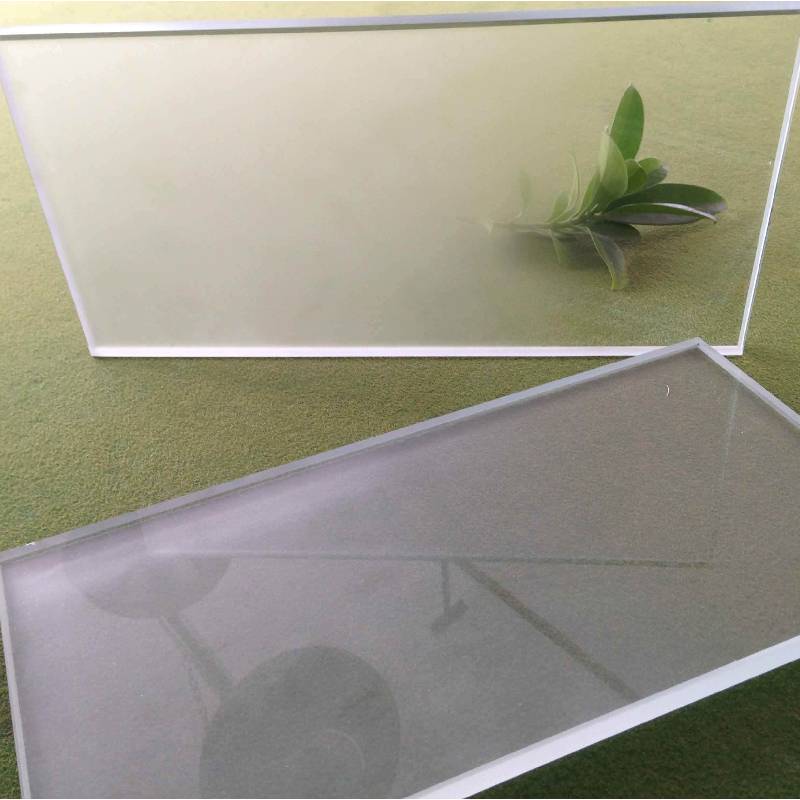

Understanding Thick Float Glass Properties, Applications, and Benefits
Thick float glass is a type of flat glass manufactured using the traditional float glass process. This method involves melting raw materials such as silica sand, soda ash, and limestone, and then floating the molten glass on a bed of molten tin. The result is a smooth, uniform surface and a consistent thickness, offering a high level of clarity and durability. As the name suggests, thick float glass generally refers to glass that is thicker than standard flat glass, typically exceeding four millimeters in thickness.
Properties of Thick Float Glass
Thick float glass is known for its unique properties that make it highly desirable in various applications. One key feature is its optical clarity. Due to the manufacturing process, it has minimal distortion, providing clear views and enabling high levels of light transmission. Additionally, thick float glass is more robust than thinner alternatives, offering enhanced strength and resistance to impact.
Another significant property is its thermal stability. Thick float glass can withstand high temperatures better than many other types of glass, which reduces the risk of thermal shock. This quality makes it ideal for applications in environments where temperature fluctuations are common. Furthermore, thick float glass is available in a variety of colors and finishes, including low-emissivity (low-E) coatings, which help improve energy efficiency by reflecting heat.
Applications of Thick Float Glass
Thick float glass finds diverse applications across various sectors. One of the primary uses is in the construction industry. It is commonly employed in high-rise buildings for windows, balustrades, and facades, where its strength and clarity provide both aesthetic appeal and security. Architects and designers often choose thick float glass to create stunning architectural features such as glass walls and skylights, enhancing natural light within spaces while providing an unobstructed view of the outdoors.
In the furniture industry, thick float glass is utilized for tabletops, shelving, and display cases. Its durable nature allows it to support substantial weight while maintaining an elegant appearance. Additionally, thick float glass is used in the automotive sector, particularly for windshields and side windows, where safety and visibility are paramount.

Another notable application is in the manufacture of glass doors and partitions. Thick float glass is used in commercial and residential spaces to create sleek and modern designs that maximize light while offering privacy. Its sound-insulating qualities also contribute to a peaceful environment in an increasingly noisy world.
Benefits of Using Thick Float Glass
The advantages of using thick float glass are numerous. First and foremost, its durability ensures it can withstand the test of time, requiring minimal maintenance. This attribute not only results in cost savings over time but also contributes to sustainability by reducing the need for frequent replacements.
Moreover, thick float glass enhances energy efficiency. When used in windows, especially with low-E coatings, it can help regulate indoor temperatures, leading to reduced reliance on heating and cooling systems. This contributes to lower energy bills and a smaller carbon footprint.
Lastly, the aesthetic appeal of thick float glass cannot be overlooked. Its clarity and finish can elevate the look of any space, making it a favorite choice among architects and designers. The ability to customize thickness, colors, and coatings allows for creative freedom and personalization in design.
Conclusion
In summary, thick float glass is a versatile material with a broad range of properties and applications. Its strength, clarity, and thermal stability make it an excellent choice for construction, furniture design, and automotive industries, among others. As more architects and builders recognize its benefits, thick float glass is likely to continue to play a pivotal role in modern design and construction, merging functionality with aesthetics in a sustainable way. Whether in a towering skyscraper or a sleek dining table, thick float glass exemplifies the perfect blend of beauty and durability.